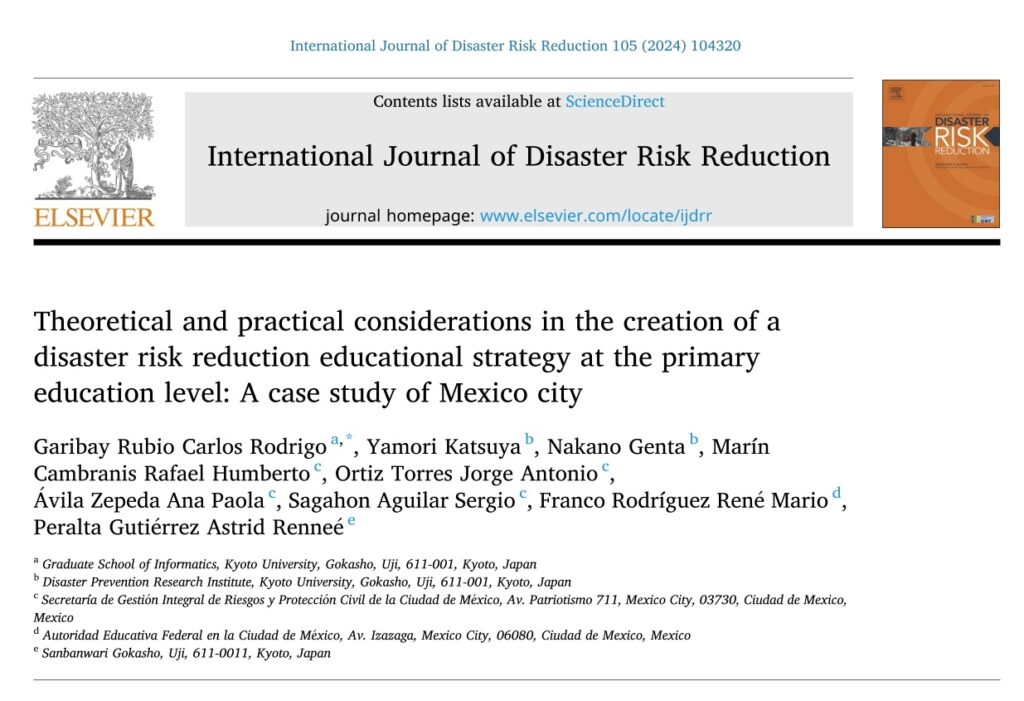Mexico city disaster risk reduction education strategy
Provide comprehensive and practical information about risk prevention, in order to raise awareness among individuals about the importance of safety and assist them in adopting preventive measures in their daily lives.
Comparar la eficiencia que diferentes modelos educativos para la gestión de riesgos tienen en la generación de acciones para la reducción de riesgos.
Conocer la opinión de los profesores respecto a las modificaciones normativas implementadas durante los pasados años.
The Ministry for Comprehensive Risk Management and Civil Protection and the Federal Education Authority in Mexico City have jointly developed a strategy to strengthen the culture of civil protection among children and adolescents studying in Mexico City schools. The strategy began in 2019 with the creation of a methodology that characterizes the areas of the city most susceptible to the impact of disruptive phenomena, weighted by their economic impact and historically observed fatality rates. The results provide relevant insights in the way DRR educational activities develop significative learning.
Pichucalco Chiapas
Strengthening community capacities in the face of disruptive natural phenomena through the involvement of the education sector.
Increasing community participation and capacities in response to disruptive natural phenomena through disaster education and the development of local response plans (emergency response switch).
Increasing understanding of the phenomena to which they are exposed and involving the educational community in the comprehensive risk management of the community.
Comparing the effectiveness of different educational models for risk management in generating actions for risk reduction.
In 2022, the University of Kyoto and the Civil Protection Department of the State of Chiapas began working together to identify elements that promote early action in the face of disruptive phenomena, particularly in areas highly exposed to hydrometeorological events.
With this objective in mind, this cooperation project is in the works to exchange experiences, as well as to potentially assess the efficiency of using various educational models on students that promote community participation and early action.
The creation of community networks that span across various sectors enables the dissemination of skills and knowledge for improved territorial response. As such, this project aims to connect the educational sector with local stakeholders for risk management.

